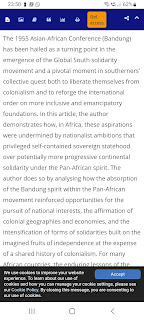The lesson that Chinese students learn today about the Opium Wars is that China should never again let itself become weak, ‘backward,’ and vulnerable to other countries. As one British historian says, “If you talk to many Chinese about the Opium War, a phrase you will quickly hear is ‘luo hou jiu yao ai da,’ which literally means that if you are backward, you will take a beating.”1
Two Worlds Collide: The First Opium War
China gave away sovereignity of Hong Kong when it lost to Britain after the first opium war and the victory of Anglo French alliance of the second opium war carved up more coastal cities and gave away market access to foreign imports includimg opium which destroyed the socio economic fabric of the society.
As Vijay Prasard reiterated the colonisers includimg Japan carved up China like a piece of pie and they condescended on treating Chinese with humiliation.
It was with the same humiliation that Africa was treated by imperialistic colonizers that carved up Africa into the 55 nations in the Berlin conference in 1853.the formation of these newly minted nations didnt take iinto account the tribal ethnicities and traditional territorial land rights of the natives theteby causing the modern day border conflicts and internecine civil wars of todays Africa.
The pan African congress collaboration of early nationalists of Asean,China and Africa sought to create an interdependent network to bring development to their nations.
The Bandung conferemce was a colossal effort at intercontinental solidarity.


No comments:
Post a Comment